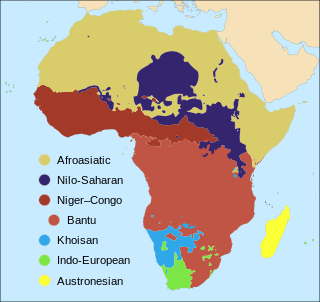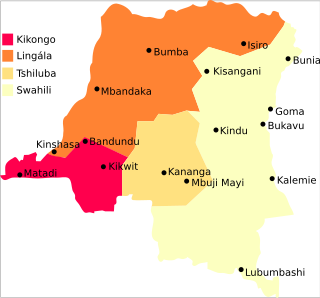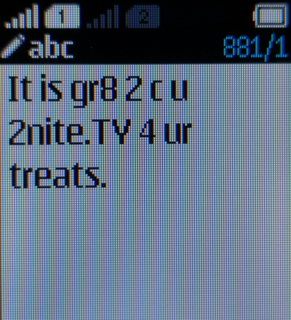Related Research Articles

Rhyming slang is a form of slang word construction in the English language. It is especially prevalent among Cockneys in England, and was first used in the early 19th century in the East End of London; hence its alternative name, Cockney rhyming slang. In the US, especially the criminal underworld of the West Coast between 1880 and 1920, rhyming slang has sometimes been known as Australian slang.

Internet slang is a non-standard or unofficial form of language used by people on the Internet to communicate to one another. An example of Internet slang is "LOL" meaning "laugh out loud". Since Internet slang is constantly changing, it is difficult to provide a standardized definition. However, it can be understood to be any type of slang that Internet users have popularized, and in many cases, have coined. Such terms often originate with the purpose of saving keystrokes or to compensate for small character limits. Many people use the same abbreviations in texting, instant messaging, and social networking websites. Acronyms, keyboard symbols, and abbreviations are common types of Internet slang. New dialects of slang, such as leet or Lolspeak, develop as ingroup Internet memes rather than time savers. Many people also use Internet slang in face-to-face, real life communication.

Niger–Congo is a hypothetical language family spoken over the majority of sub-Saharan Africa. It unites the Mande languages, the Atlantic-Congo languages, and possibly several smaller groups of languages that are difficult to classify. If valid, Niger-Congo would be the world's largest in terms of member languages, the third-largest in terms of speakers, and Africa's largest in terms of geographical area. It is generally considered to be the world's largest language family in terms of the number of distinct languages, just ahead of Austronesian, although this is complicated by the ambiguity about what constitutes a distinct language; the number of named Niger–Congo languages listed by Ethnologue is 1,540.
Slang is vocabulary of an informal register, common in spoken conversation but avoided in formal writing. It also sometimes refers to the language generally exclusive to the members of particular in-groups in order to establish group identity, exclude outsiders, or both. The word itself came about in the 18th century and has been defined in multiple ways since its conception.

Kinshasa, formerly Léopoldville, is the capital and the largest city of the Democratic Republic of the Congo. Once a site of fishing and trading villages situated along the Congo River, Kinshasa is now one of the world's fastest growing megacities.
Jargon is the specialized terminology associated with a particular field or area of activity. Jargon is normally employed in a particular communicative context and may not be well understood outside that context. The context is usually a particular occupation, but any ingroup can have jargon. The main trait that distinguishes jargon from the rest of a language is special vocabulary—including some words specific to it and often different senses or meanings of words, that outgroups would tend to take in another sense—therefore misunderstanding that communication attempt. Jargon is sometimes understood as a form of technical slang and then distinguished from the official terminology used in a particular field of activity.
Polari is a form of slang or cant used in Britain and Ireland by some actors, circus and fairground showmen, professional wrestlers, merchant navy sailors, criminals, sex workers and the gay subculture. There is some debate about its origins, but it can be traced back to at least the 19th century and possibly as far as the 16th century. There is a long-standing connection with Punch and Judy street puppet performers, who traditionally used Polari to converse.

The languages of Africa are divided into several major language families:

The Democratic Republic of the Congo, informally Congo-Kinshasa, DR Congo, the DRC, the DROC, or the Congo, and formerly and also colloquially Zaire, is a country in Central Africa. It is bordered to the northwest by the Republic of the Congo, to the north by the Central African Republic, to the northeast by South Sudan, to the east by Uganda, Rwanda, and Burundi, and by Tanzania, to the south and southeast by Zambia, to the southwest by Angola, and to the west by the South Atlantic Ocean and the Cabinda exclave of Angola. By area, it is the second-largest country in Africa and the 11th-largest in the world. With a population of around 108 million, the Democratic Republic of the Congo is the most populous officially Francophone country in the world. The national capital and largest city is Kinshasa, which is also the nation's economic center.

LOL, or lol, is an initialism for laughing out loud and a popular element of Internet slang. It was first used almost exclusively on Usenet, but has since become widespread in other forms of computer-mediated communication and even face-to-face communication. It is one of many initialisms for expressing bodily reactions, in particular laughter, as text, including initialisms for more emphatic expressions of laughter such as LMAO and ROFL or ROTFL. Other unrelated expansions include the now mostly obsolete "lots of luck" or "lots of love" used in letter-writing.

The Interahamwe is a Hutu paramilitary organization active in the Democratic Republic of the Congo and Uganda. The Interahamwe was formed around 1990 as the youth wing of the National Republican Movement for Democracy and Development, the then-ruling party of Rwanda, and enjoyed the backing of the Hutu Power government. The Interahamwe, led by Robert Kajuga, were the main perpetrators of the Rwandan genocide, during which an estimated 500,000 to 1,000,000 Tutsi, Twa, and moderate Hutus were killed from April to July 1994, and the term "Interahamwe" was widened to mean any civilian bands killing Tutsi.

African French is the generic name of the varieties of the French language spoken by an estimated 141 million people in Africa in 2018, spread across 34 countries and territories. This includes those who speak French as a first or second language in these 34 African countries and territories, but it does not include French speakers living in other African countries. Africa is thus the continent with the most French speakers in the world. French arrived in Africa as a colonial language; these African French speakers are now a large part of the Francophonie.
Helsinki slang or stadin slangi is a local dialect and a sociolect of the Finnish language mainly used in the capital city of Helsinki. It is characterized by its abundance of foreign loan words not found in the other Finnish dialects.
Indonesian slang, or informal Indonesian language is a term that subsumes various vernacular and non-standard styles of expression used throughout Indonesia that are not necessarily mutually intelligible. Regional slang from the capital of Jakarta, based on Betawi language, is however heavily exposed and promoted in national media, and considered the de facto Indonesian slang. Despite its direct origins, Indonesian slang often differs quite significantly in both vocabulary and grammatical structure from the most standard form of Indonesia's national language. These expressions are neither standardized nor taught in any formal establishments, but rather function in daily discourse, usually in informal settings. Several dictionaries of bahasa gaul has been published. Indonesian speakers regularly mix several regional slangs in their conversations regardless of origin, but depending on the audience and the familiarity level with the listeners.

The culture of the Democratic Republic of the Congo is extremely varied, reflecting the great diversity and different customs which exist in the country. Congolese culture combines the influence of tradition to the region, but also combines influences from abroad which arrived during the era of colonization and continue to have a strong influence, without destroying the individuality of many tribal customs.

Urban Dictionary is a crowdsourced online English language dictionary for slang words and phrases, operating under the motto "Define Your World." The website was founded in 1999 by Aaron Peckham. Originally, Urban Dictionary was intended as a dictionary of slang or cultural words and phrases, not typically found in standard English dictionaries, but it is now used to define any word, event, or phrase. Words or phrases on Urban Dictionary may have multiple definitions, usage examples, and tags. As of 2014, the dictionary contains over seven million definitions, while around 2,000 new entries were being added daily.

The Democratic Republic of the Congo is a multilingual country where an estimated total of 242 languages are spoken. Ethnologue lists 215 living languages. The official language, inherited from the colonial period, is French. Four other languages, three of them indigenous, have the status of national language: Kikongo, Lingala, Swahili and Tshiluba.

Short Message Service (SMS) language, textspeak, or texting language is the abbreviated language and slang commonly used in the late 1990s and early 2000s with mobile phone text messaging, and occasionally through Internet-based communication such as email and instant messaging.

Its location in the center of Africa has made the Democratic Republic of the Congo a key player in the region since independence. Because of its size, mineral wealth, and strategic location, Zaire was able to capitalize on Cold War tensions to garner support from the West. In the early 1990s, however, with the end of the Cold War and in the face of growing evidence of human rights abuses, Western support waned as pressure for internal reform increased.
Prick is a vulgar word for penis as well as a pejorative term used to refer to a despicable or contemptible individual. It is generally considered offensive, though in the past it has been used as a term of endearment. Its history as a euphemism for penis goes back to the 1500s and has been used in wordplay by Shakespeare and other writers who have combined the vulgarism with the standard meaning of the noun, which means the act of piercing or puncturing. Most linguists believe it has only been used as a direct insult since 1929.
References
- ↑ "Ghetto Blaster : Et la rumba congolaise rythma les indépendances" . Retrieved 20 February 2011.
- ↑ Georges Mulumbwa Mutambwa. "The spread of Indubil through DR Congo: context and modalities". Archived from the original on 19 July 2011. Retrieved 20 February 2011.